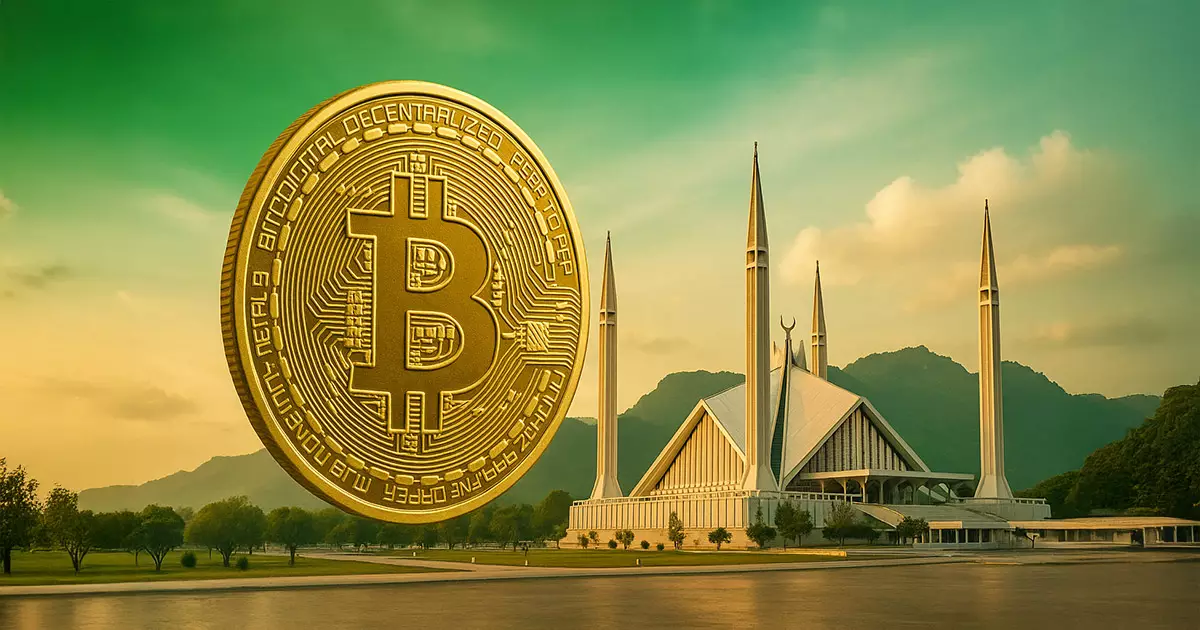In a move that raises eyebrows globally, Pakistan has pledged to allocate a staggering 2,000 megawatts of electricity to power Bitcoin mining operations and artificial intelligence data centers, even as the country grapples with significant economic challenges and electricity shortages. This ambitious plan comes in stark contrast to the International Monetary Fund’s (IMF) cautious stance on cryptocurrency investments, especially for nations under its fiscal watch. As the IMF prepares for yet another round of talks regarding Pakistan’s budgetary plans, the air is thick with uncertainty and impending scrutiny, drawing a clear line between ambitious innovation and fiscal responsibility.
IMF’s Dilemma: Balancing Support with Regulation
The IMF has long been a stalwart defender of prudent fiscal management, urging countries that receive its support to exercise extreme caution in terms of financial resources — especially in volatile investments such as cryptocurrencies. Having sanctioned a $2.4 billion loan to Pakistan earlier this month, the IMF is now raising alarms about the nation’s unilateral decision to divert significant power resources toward Bitcoin mining without initial consultations. This growing chasm between the Pakistani government and the IMF conveys a broader message: when it comes to economic stability, the stakes are high. Simply put, the implications of such initiatives could lead to unstable electricity tariffs and distribution problems, exacerbating an already precarious economic situation.
Coal Power Plants: A Compromised Solution?
Repurposing three underutilized coal power plants to fuel Bitcoin mining operations adds layers of complexity to an already troubled energy landscape. While proponents may argue this is an innovative step towards modernization and crypto adoption, it is critical to ask whether harnessing outdated coal technology truly aligns with Pakistan’s long-term energy strategy. Environmental concerns aside, the question must be raised: can a country afflicted by energy shortages afford to jeopardize its remaining power infrastructure for speculative ventures? Further complicating matters is the impending question of how this move will affect electricity pricing — a sensitive subject in a nation already beleaguered by economic hardship.
Rapid Reforms and A Nation at a Crossroads
Pakistan’s rapid shift towards the cryptocurrency domain, including official establishments like the Pakistan Crypto Council (PCC) and the Pakistan Digital Assets Authority (PDAA), raises another significant concern. While the urgency to adopt cutting-edge technologies is evident, the execution seems rushed and lacking in comprehensive planning. The appointment of influential figures, such as Changpeng Zhao, the former CEO of Binance, as a strategic advisor might seem like a step forward, but could also come with unseen risks. It’s imperative for Pakistan to tread carefully; abandoning its strategic prudence for the allure of cryptocurrency could lead to long-term repercussions that the nation may not be prepared for.
A Cautionary Tale or a Pathway Forward?
Simply establishing regulatory bodies and high-profile collaborations does not equate to a solidified framework conducive to a healthy economic ecosystem. The recent unveiling of Pakistan’s first strategic Bitcoin reserve and the introduction of a national Bitcoin wallet are historic milestones, indeed. Yet, they should not overshadow the reality that the nation’s fiscal policies are still being scrutinized by the very organizations that provide financial lifelines. The IMF’s apprehension signifies more than mere disapproval; it embodies a broader warning that recklessness in financial governance could further exacerbate Pakistan’s economic malaise.
In closing, Pakistan sits on a precarious precipice. The stakes have never been higher as it strives for innovation while grappling with essential economic reforms. The nation must choose wisely: will it prioritize short-term technological advances at the cost of its longer-term economic stability, or find a sustainable balance that leverages its resources responsibly in an ever-evolving global landscape? The answer will ultimately define Pakistan’s future trajectory.

